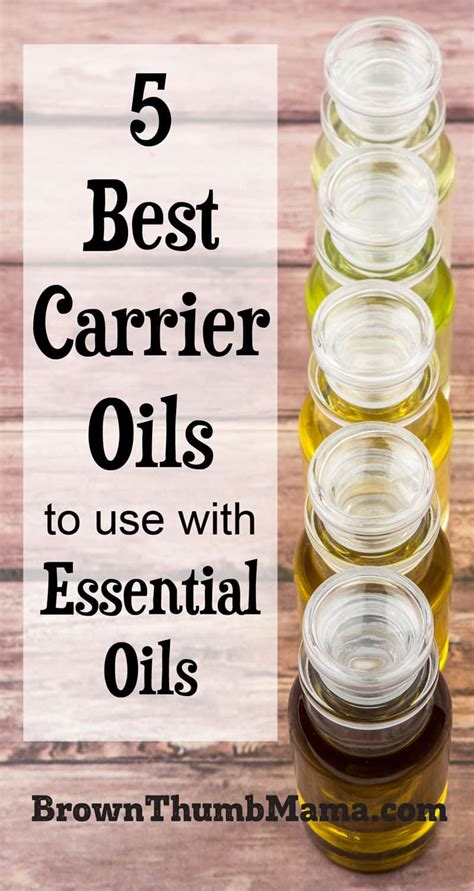Introduction

Carrie oils, also known as carrier oils, are vegetable-based oils that are used to dilute essential oils for safe topical application. They are typically odorless, colorless, and have a mild texture, making them ideal for blending with essential oils without altering their therapeutic properties.
Benefits of Carrier Oils
Carrier oils offer several benefits:
- Dilution: They dilute essential oils, making them safe for topical application by reducing their concentration.
- Nourishment: Carrier oils contain vitamins, minerals, and fatty acids that nourish the skin and hair.
- Absorption: They facilitate the absorption of essential oils into the skin, enhancing their therapeutic effects.
- Preservation: Carrier oils help preserve essential oils, extending their shelf life and preventing oxidation.
Types of Carrier Oils
Numerous carrier oils are available, each with unique properties:
- Jojoba Oil: Similar to the natural oils produced by the skin, jojoba oil is non-comedogenic and absorbs quickly.
- Coconut Oil: Rich in lauric acid, coconut oil is antibacterial, antifungal, and moisturizing.
- Sweet Almond Oil: Gentle and hypoallergenic, sweet almond oil is suitable for all skin types.
- Argan Oil: High in antioxidants, argan oil helps protect the skin from environmental damage.
- Grapeseed Oil: Light and non-greasy, grapeseed oil is ideal for oily or acne-prone skin.
Choosing the Right Carrier Oil
Selecting the appropriate carrier oil is crucial:
- Skin Type: Consider your skin type when choosing a carrier oil. Oily or acne-prone skin may benefit from lighter oils like grapeseed oil, while dry or sensitive skin may prefer nourishing oils like jojoba or coconut oil.
- Essential Oil Properties: Some carrier oils may enhance or diminish the therapeutic effects of essential oils. For example, jojoba oil is suitable for diluting essential oils with calming effects, while coconut oil can amplify the stimulating effects of certain oils.
- Personal Preference: Ultimately, the choice of carrier oil depends on personal preferences and the desired outcome. It may take some experimentation to find the best fit.
Applications of Carrier Oils
Carrier oils have a wide range of applications:
- Aromatherapy: Essential oils diluted in carrier oils can be used for aromatherapy through massage, baths, or diffusers.
- Skincare: Carrier oils can be incorporated into skincare routines as moisturizers, cleansers, or serums.
- Haircare: They can be used as hair treatments to nourish, protect, and promote hair growth.
- DIY Products: Carrier oils can be combined with other ingredients to create homemade skincare and haircare products.
New Applications of Carrier Oils
Innovative applications of carrier oils are emerging:
- Carrier Oil Emulsions: Emulsifying carrier oils with water creates a stable emulsion that can be used as a hydrating spray or lotion.
- Carrier Oil Salves: Combining carrier oils with beeswax or shea butter produces a salve that offers deep skin nourishment and protection.
- Carrier Oil Capsules: Encapsulating carrier oils in softgels allows for convenient oral administration of essential oils.
Table 1: Physical Properties of Common Carrier Oils
| Carrier Oil | Density (g/mL) | Viscosity (cP) |
|---|---|---|
| Jojoba Oil | 0.865 | 40 |
| Coconut Oil | 0.925 | 23 |
| Sweet Almond Oil | 0.917 | 30 |
| Argan Oil | 0.905 | 45 |
| Grapeseed Oil | 0.912 | 18 |
Table 2: Fatty Acid Composition of Common Carrier Oils
| Carrier Oil | Saturated Fat (%) | Monounsaturated Fat (%) | Polyunsaturated Fat (%) |
|---|---|---|---|
| Jojoba Oil | 80 | 12 | 8 |
| Coconut Oil | 92 | 6 | 2 |
| Sweet Almond Oil | 13 | 70 | 17 |
| Argan Oil | 20 | 45 | 35 |
| Grapeseed Oil | 11 | 21 | 68 |
Table 3: Applications of Carrier Oils
| Application | Carrier Oils |
|---|---|
| Aromatherapy | Jojoba oil, coconut oil |
| Skincare | Argan oil, sweet almond oil |
| Haircare | Coconut oil, jojoba oil, argan oil |
| DIY Products | All carrier oils |
Table 4: Tips for Using Carrier Oils
- Always dilute essential oils before topical application.
- Choose a carrier oil based on your skin type and the desired outcome.
- Store carrier oils in a cool, dark place to prevent oxidation.
- Do a patch test before applying a blend to a large area of skin.
- Enjoy the versatile benefits of carrier oils in various applications.
